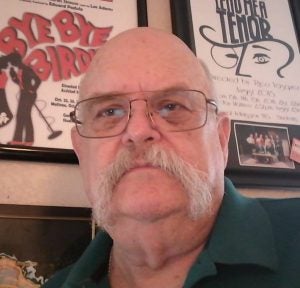Coach June Davis: Orange boys don’t have the guts to play football
Published 9:25 pm Friday, February 7, 2020

- And Now You Know
In the fall of 1954, there was a crisis in Orange.
The coaching staff of Lutcher Stark High School did not feel the boys of Orange had enough “guts” to play football.
Head coach June Davis stated that “Many of our boys simply do not have the guts it takes to work hard and build a good football team.”
The coach went on to say that the students seemed to lack pride as well as guts.
“The attitude of most of the boys is sickening. If you tell them they don’t have the guts to stick to it……they simple shrug their shoulders and walk away,” said Davis. “Some of the boy’s attitudes are ‘why play, you don’t get anything out of it’.”
Davis laid the blame on more than the students; he gave the families and the townspeople a healthy chunk of credit for the bad attitudes.
“At the end of spring training there were 72 candidates, at fall training there were less than 50. Few players had much experience, we knew we did not have much in the way of seasoned material. We knew building for the future was going to be a big job. But it is impossible to build if you do not have anything to work with,” said Davis. “This year’s B Squad will be the varsity next year. B Squad coach Chief Wilson only has 19 players, not enough for a scrimmage session.”
In the fall of 1954, there were only 30 players on the varsity squad.
In a roundtable, the coaching staff agreed that the boys were afraid of competition.
Backfield coach James Magill said, “And for this the boys should be ashamed. Throughout their lives they will be forced into competition regardless of their occupation and if they are a failure now, they will be a failure in the future.”
“We can only see one reason why the boys have failed to turn out for football, that is because they do not have the stamina to take what we dish out,” said Davis.
Davis praised the boys that were on the team.
“They have stuck through the hard work, they are proud for a chance to play on the Tiger varsity,” said Davis. “I cannot assure the Orange fans a victory every game, but I can assure them they will see a bunch of fellows who will fight every minute of the game, win or lose.”
He believed if the parents and the community would have encouraged a curfew for the players so that they would get proper rest it would have made a difference. He also thought the parents and community should try to instill pride in the students.
“If I could get the help of the community, I could give Orange a team they would be proud of,” said Davis.
For those who disagreed with Davis, he said they should check the numbers of players on other Class 2A and 2AA teams. “They have many more players than Orange. This situation should make Orange citizens turn red in the face,” said Davis.
“We need many more players, especially on the B Squad to season for future use,” said Davis. “The backfield is in ‘fair shape’, about three deep in every position. We are a bit lacking on the line.”
Team sprit was good, even with the amount of work put on them.
Davis ended his comments by saying he was confident the team would be in top shape for the season opener.
In 1959, Ted Jefferies was hired as head coach of the Tigers. Jefferies 27 years of coaching had a background including coaching at Stephen F. Austin State College where he had five second-place finishes in the Lone Star Conference.
In 1961, Jefferies was inducted as a charter member of the Texas High School Coaches Association Hall of Honor.
Jefferies’ Tigers, in the fall of 1962, went to the state semifinals and included a High School All American quarterback.
Jefferies later said in his long career as a college and high school coach, the 1962 Tigers had the most talent of any team he had coached.
The attitude of prospective football players, students, parents, and the community of Orange changed from the dismal fall of 1954. Several state championships attest to that.
“And now you know.”






